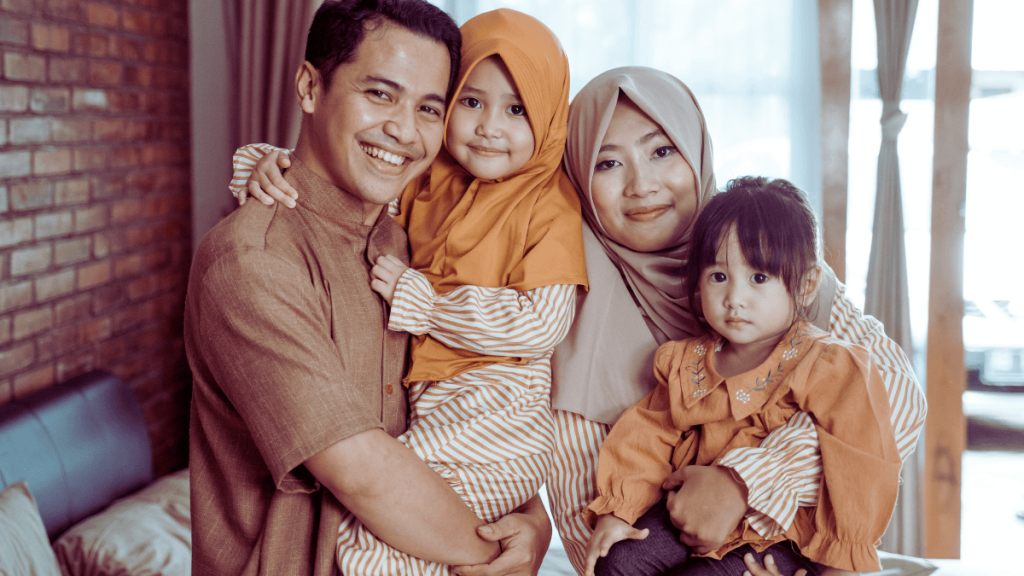BY: KANZ UL HUDA

In the tapestry of Islamic teachings, the family holds a sacred and central position.
Rooted in the Quranic injunctions and exemplified in the traditions of Prophet Muhammad ﷺ the institution of family in Islam is not merely a social construct but a divine framework that nurtures love, compassion, and stability.
At its core, the family unit serves as a sanctuary of support, guidance, and spiritual growth for individuals. Let us delve into the profound significance of the family in Islam and the values it espouses.
رَبَّنَا هَبْ لَنَا مِنْ أَزْوَاجِنَا وَذُرِّيَّاتِنَا قُرَّةَ أَعْيُنٍ وَاجْعَلْنَا لِلْمُتَّقِينَ إِمَامًا
Translation: “Our Lord, grant us from among our wives and offspring comfort to our eyes and make us an example for the righteous.” (Quran 25:74)
Foundation of Love and Mercy:
1. In Islam, marriage is not merely a contract but a covenant infused with love and mercy. The Quran describes spouses as garments for each other, symbolizing the intimate bond and protection they provide. Mutual respect, kindness, and compassion are the cornerstones of marital relations, fostering an environment of harmony and tranquility within the family.
Responsibilities and Duties:
2. The Islamic family structure delineates clear roles and responsibilities for each member. The husband is tasked with the provision and protection of the family, while the wife is entrusted with the nurturing of children and the management of the household. Children are obligated to honor and obey their parents, fostering mutual respect and cohesion within the family unit.
Education and Upbringing:
3. Islam places great emphasis on the upbringing and education of children. Parents are enjoined to imbue Islamic values, ethics, and principles in their offspring, guiding them towards righteousness and piety. The family serves as the primary institution for moral and spiritual development, instilling a sense of purpose and identity in the younger generation.
Support and Solidarity:
4. In times of joy and adversity, the family stands as a bastion of support and solidarity. Islamic teachings emphasize the importance of mutual assistance, compassion, and empathy among family members. Through collective prayers, counsel, and encouragement, individuals find solace and strength in the embrace of their loved ones.
Legacy of Prophetic Tradition:
5. The exemplary conduct of Prophet Muhammad ﷺ towards his family serves as a guiding light for Muslims. His affection towards his wives, compassion towards his children, and respect for his relatives underscore the noble values enshrined in Islamic teachings.
Following the Prophetic model, Muslims strive to emulate virtues of patience, forgiveness, and generosity within their families.
رَبَّنَا آتِنَا فِي الدُّنْيَا حَسَنَةً وَفِي الْآخِرَةِ حَسَنَةً وَقِنَا عَذَابَ النَّارِ
Translation: “Our Lord, give us in this world [that which is] good and in the Hereafter [that which is] good and protect us from the punishment of the Fire.” (Quran 2:201)
In conclusion, the family in Islam is not merely a social unit but a divine blessing and a source of spiritual fulfillment. Grounded in love, compassion, and mutual respect, it serves as a sanctuary of support and guidance for individuals. By upholding the values of faith, unity, and righteousness, Muslim families strive to emulate the Prophetic legacy and cultivate a harmonious society rooted in the teachings of Islam.
Source: IslamiCity

Leave a Reply